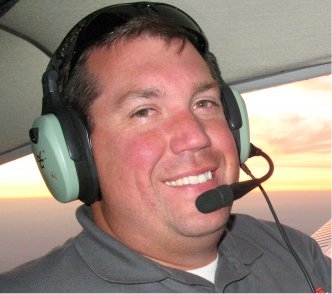Flight training isn’t cheap. Anyone who tells you it is lying. But that doesn’t mean it isn’t affordable. It may, however, require that your customers budget in order to best complete their training. This is something with which a good flight school can help their customers.
Why is this an important discussion for a flight training provider to have with a customer? Primarily to make sure your customers understand what it is really going to take to finish their training. This helps them not only better plan for the costs they will incur, but it also decreases the likelihood they will drop out of training for financial reasons part of the way through.
Some flight school owners are fearful that showing the costs will scare customers away. This isn't necessarily a bad thing. Getting customers in the door only to have them leave part way through gets a flight school some revenue, but it doesn't create long-term customers. Starting students that have no financial ability to finish allocates valuable resources (aircraft and flight instructor time) to a customer that won't stick around. This would be the equivalent of a restaurant having a waiter or waitress spend time with a bunch of customers that can only afford to buy a cup of coffee, not a full meal. Those customers would be taking up table space that should be used for customers that can afford a full dinner and maximize the profit potential.
Having a discussion with customers about budget expectations doesn't mean a flight school needs to get involved with the personal finances of each customer. It just means that you have to provide your customers accurate and realistic expectations of what costs they will incur during flight training. A customer may choose to fly more or less per month based on his or her own personal budget abilities. Some may choose to hold off training for a period of time to build up some savings before they start. These are decisions that flight training students cannot make without accurate information. This is information that a new student walking through the door can only get from the flight training provider.
It starts with providing accurate information about the costs per hour of flight time and instruction time for services, and the real expected experience requirements that your customers will need to complete to finish their training. If your flight school hasn’t already done this, get on it and do it now.
With this in hand, you can help your customers build a monthly training budget. Consider how many lessons per month they plan to do, how much time per lesson that will be required, and any ground lessons that will also be done, and add them all up to determine what the total monetary requirement will be in order to meet that training level each month. It's really pretty simple math when you break it down. Need a little help with that? Click here for a spreadsheet you can use.
Once a customer understands the costs that will be incurred during training, the student can work with his or her flight training provider to establish a number of lessons per month that meets the person’s financial capabilities. This will be more or less for each customer and may change if students have saved for their training ahead of time.
With a monthly budget in hand, you can also work with your customer to determine the overall training costs based on completion times your school typically experiences for students pursuing ratings or certificates. Don't forget to help your customers also plan for other expenses in their training, such as books or other training materials, knowledge tests, their airman medical, or practical test costs.
Having a budget discussion with customers may feel awkward at first, but it doesn't have to be once you get a little practice. Sitting down with a new customer and helping them understand real costs of flight training lets them build a budget that will allow them to plan appropriately and allows you as the flight training provider to build a training program that will meet the customers budget abilities and maximize your training resources.
Designated Pilot Examiner Jason Blair is the former head of NAFI, and the past owner of a flight school.


